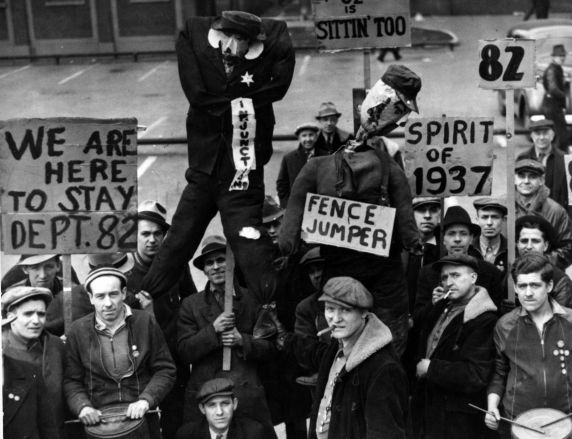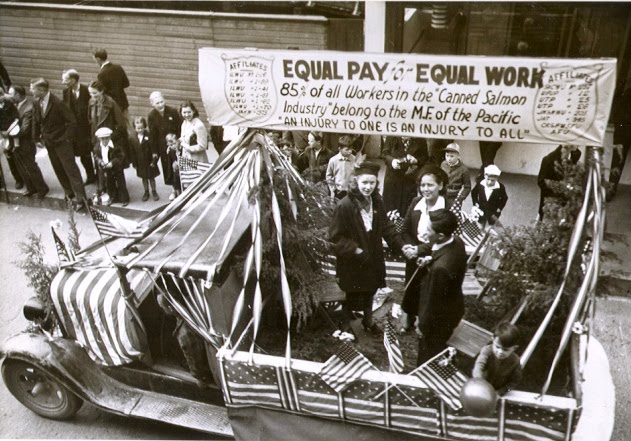FedoraFan112390
Practically Family
- Messages
- 646
- Location
- Brooklyn, NY
From what I've seen on my 8 years around here, most people here tend to love and gravitate more toward the 1920s-1940s roughly than any other period; most seem to define that rough span as being the "Golden Era". From what I've seen, 1927-1945 or so is the most common marker points for the Golden Era around here, and mainly the '30s-'45 in particular.
My question is: Why that era? Why that range?
I'm not questioning your like of it - not in any negative way. I'm not asking you to justify your love of it, more asking why you love that period, why for you the '30s-40s is the Golden Era?
Myself, I view roughly 1935-1965 as the "Golden Era". The high point in the Presidency of FDR, the birth of color (the wondrous Technicolor hues depicted in Gone with the Wind and The Wizard of Oz), and the waning of the Depression, America's triumph in WWII, the birth of the Atomic Age and all of the good and bad associated with it (especially the obsession with futurism circa '45-mid 60s), the mid-late '50s as (IMO) the high point of American society (A time of decent politics, post McCarthy, prosperity - a period of "Pax Americana"), the beautiful color films of the 1950s and the glamour of Monroe and the birth of Disneyland and all it stood for then. A time when men were men, women were women, and everyone seemed to look toward America's future with hope. I love all of the music from the 1940s-1965; I'm not particularly a fan of 1930s era music with some exceptions. Swing, Jazz, Bebop, early Rock - that to me is the pinnacle of American music. An era which saw the likes of Gable, Bogart, Stewart, Flynn, Niven, the Rat Pack, Marlon Brando, James Dean, Rod Taylor and many other leading men and beautiful ladies like Vivien Leigh, Lana Turner, Lauren Bacall, Sandra Dee, Elizabeth Taylor and many others. The era of the nostalgia 8mm home movie.
I cut the era off in March 1965 as the first ground troops make their way into Vietnam and America begins to enter an age of turmoil, and rejects long-held social mores that we've never gotten back since.
That's why for me, 1935-1965 is the Golden Era; Why is the 30s-40s the era for you?
My question is: Why that era? Why that range?
I'm not questioning your like of it - not in any negative way. I'm not asking you to justify your love of it, more asking why you love that period, why for you the '30s-40s is the Golden Era?
Myself, I view roughly 1935-1965 as the "Golden Era". The high point in the Presidency of FDR, the birth of color (the wondrous Technicolor hues depicted in Gone with the Wind and The Wizard of Oz), and the waning of the Depression, America's triumph in WWII, the birth of the Atomic Age and all of the good and bad associated with it (especially the obsession with futurism circa '45-mid 60s), the mid-late '50s as (IMO) the high point of American society (A time of decent politics, post McCarthy, prosperity - a period of "Pax Americana"), the beautiful color films of the 1950s and the glamour of Monroe and the birth of Disneyland and all it stood for then. A time when men were men, women were women, and everyone seemed to look toward America's future with hope. I love all of the music from the 1940s-1965; I'm not particularly a fan of 1930s era music with some exceptions. Swing, Jazz, Bebop, early Rock - that to me is the pinnacle of American music. An era which saw the likes of Gable, Bogart, Stewart, Flynn, Niven, the Rat Pack, Marlon Brando, James Dean, Rod Taylor and many other leading men and beautiful ladies like Vivien Leigh, Lana Turner, Lauren Bacall, Sandra Dee, Elizabeth Taylor and many others. The era of the nostalgia 8mm home movie.
I cut the era off in March 1965 as the first ground troops make their way into Vietnam and America begins to enter an age of turmoil, and rejects long-held social mores that we've never gotten back since.
That's why for me, 1935-1965 is the Golden Era; Why is the 30s-40s the era for you?



